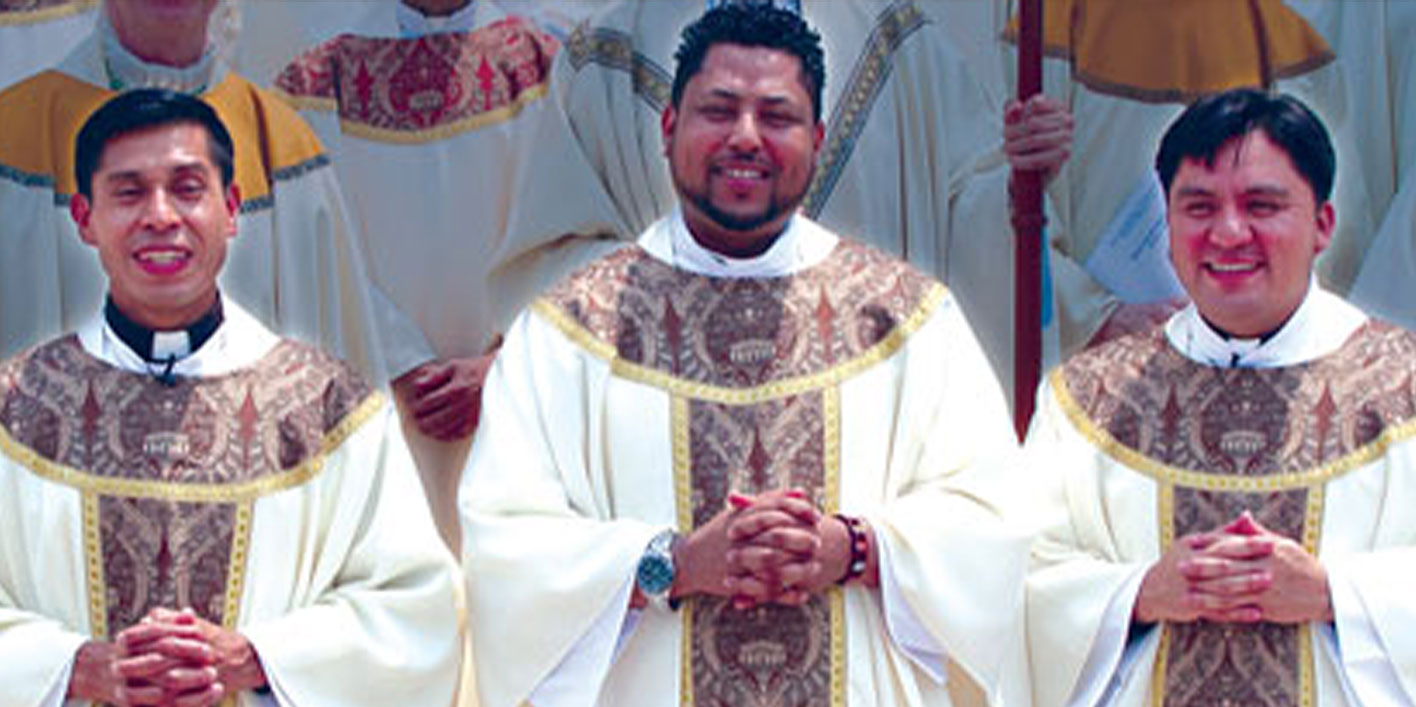Saying Yes to God
“I don’t want to be a priest. I have other plans.” Years before he entered the novitiate, Leo Tiburcio was in a serious relationship—a religious vocation was the last thing he was considering. That was more than fifteen years ago. Now, as a newly ordained priest, Fr. Tiburcio smiles and says jubilantly, “I’m so happy; I’m meant to be a Vincentian Priest.”
Fr. Tiburcio began his journey of formation to the priesthood ten years ago, as did Fr. Luis Romero, CM. Both diligently studied for a decade, learning subjects like philosophy, theology, sacred scripture, and the sacraments. Both priests lived out the teachings of St. Vincent de Paul in their ministries of helping the poor. “The Vincentian mission is not about being self-centered, but rather reaching out and helping others,” says Fr. Romero. Fr. Tiburcio agrees. “Being a Vincentian is about service. It’s not just preaching service, but living it. That’s what St. Vincent did. He didn’t just say, ‘Let’s help the poor.’ He really did it.”Just as important as the study and the work, both priests have prayed and drawn closer to the Blessed Mother. Fr. Tiburcio says, “Mary’s whole life was a ‘yes’ to God’s will. So, when I am about to make a difficult decision, I say, ‘Mary help me. I don’t know how this is going to happen. I’m afraid, but help me to say yes to God like you did.’ She has been part of my journey.”
Fr. Romero also recognizes Mary’s role in his seminary experience. “The first year of my formation, I remember praying the Novena to the Miraculous Medal every week, coming to the Shrine and praying in this beautiful place. That’s how I came to grow in my love for Mary.”
Both priests agree that the journey has been an adventure, but it’s been worth every step. As “rookie” priests (they were both ordained on Saturday, June 1, 2019), they’re still learning the ropes. But they’ve already had some very touching moments—not surprisingly, beginning with their ordination day.
That morning, Fr. Romero received a phone call from the town in El Salvador where he was born and raised. It was the parish priest, asking him to be a call-in visitor on their radio program later in the morning. “I know many people from there were excited about my ordination,” he says, “so it was a great opportunity for me to share my excitement with them.” The entire parish had been praying for him during his formation years, and he knows their prayers were instrumental to his vocation.
After his ordination, Fr. Romero was able to visit the home where he received another unexpected moment of grace. Upon arrival, he was informed that one of the village women had been ill. He remembered her as a devout Catholic, who lived her faith fully, and he was looking forward to visiting her. Unfortunately, she passed away before they met. The parish secretary asked him if he could celebrate the funeral Mass, as the pastor was not available. “How am I going to do this?” he wondered, concerned that without another priest to help guide him through his first funeral, “It would be a disaster.” But he trusted that God would get him through it. After the Mass, one of the woman’s sons thanked Fr. Romero, and said that it was fitting for him to celebrate her funeral Mass: “She was a woman of prayer, and she was always praying for you. I’m not saying that because someone told me, but because I heard her continually praying for you.”
Fr. Tiburcio’s unexpected moment of grace happened as he bumped into an old friend in the parking lot of his parish in North Carolina. “He approached me, congratulated me, and asked me, ‘Father, can you hear my confession?’ So, I heard his confession right there, under the tree,” Fr. Tiburcio laughs. “It’s a graced moment to help people in the sacrament of reconciliation; we really see God’s presence there.” And Fr. Tiburcio should know. At his parish, Our Lady of Guadalupe, the lines for confession are so long, he has been known to hear confessions for three hours straight.
And, he explains, “God always provides the graces to accomplish what He asks of us, helping us to develop virtues and growth. Every time I say ‘yes’ to God, I receive something—virtues or capacities—that help me do my ministry.” Elaborating, he continues, “I was a shy guy. I talked very little and always sat in the back. And now I’m standing in front of the community, preaching.” He pauses, smiles, and adds, “I never thought that I could be so happy.”


